News
05 February 2020
The breathing of dikes
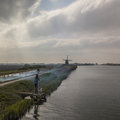
When looking at a dike, you wouldn’t be able to detect any motion in this robust structure. Though in fact there is. On a millimetre level, dikes expand and shrink in relation to the weather conditions. Ece Özer showed that observing this ‘breathing’ of dikes could help prevent catastrophic flooding events. She used this feature to create an innovative model based on satellite data to better detect weaknesses in a dike.
04 February 2020
Not a band-aid but a feeder solution for our coasts
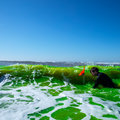
At the weekend Matthieu de Schipper likes to surf the waves but on weekdays he studies how they transport the sand along the coast and up and down beaches. ‘Sea level rise is a threat to coasts across the globe. I want to use the forces of nature to provide engineering solutions to this problem on a global scale’. At the Sand Motor project in the Netherlands De Schipper is training students to do the necessary fieldwork. In all weathers.
01 February 2020
What the Wadden can teach us
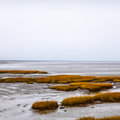
Intertidal zones are crucial for the protection of our coast and as stop-overs for migrating birds. But, increasingly, many of these sand and mudflats are disappearing permanently underneath the waves. Cynthia Maan investigated how by cooperating with nature and using a systems-based approach these precious resources can be saved.
30 January 2020
Making dikes safer with a bass guitar
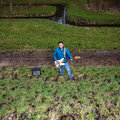
Playing a bass guitar on top of a dike. It’s not something you see a TU Delft scientist do every day. Yet this is exactly how post-doc Juan Aguilar-López tested his experiment on dike monitoring with the use of fiber optic cables. A technology which could greatly improve dike safety in the future.
25 January 2020
Plastic-free Rivers
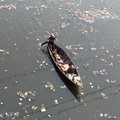
The oceans of the world are filling up with plastic waste carried there by rivers. Where it all comes from no one knows. Wim Uijttewaal, professor of Experimental Hydraulics and professor of Resources & Recycling Peter Rem are on a mission to make the rivers plastic free. ‘We want to turn the removal of plastic from rivers into big business. And we want to devise a plastic waste radar that will show where the plastic is, and how it got there.’